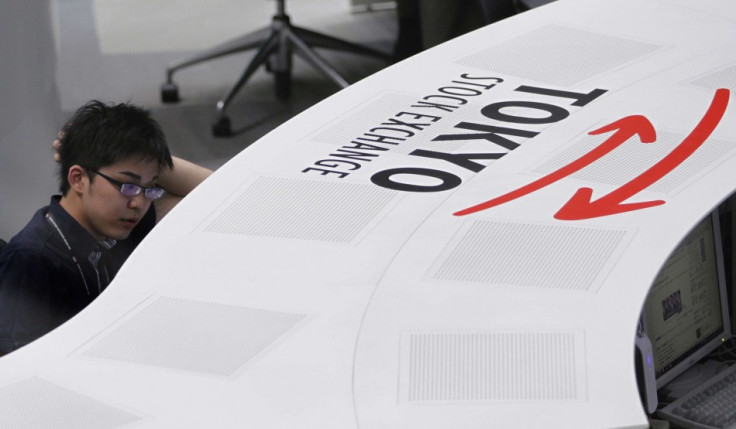Asian Stocks Mixed but Nikkei Soars on Weak Yen

Asian markets traded mixed in the morning but the Japanese stocks surged as the yen hit fresh lows against the dollar and weak inflation figures triggered further stimulus hopes.
The Nikkei was up 2.07 percent or 220.29 points to 10841.16 while South Korea's KOSPI was down 1.15 percent or 22.58 points to 1941.90. Australia's S&P/ASX 200 gained 0.42 percent or 20.00 points to 4830.20.
In China, the Shanghai Composite Index slipped 0.11 percent or 2.54 points to 2300.06. Hong Kong's Hang Seng fell 0.26 percent or 60.74 points to 23538.16.
The yen continued to dip against the dollar on fresh monetary aid hopes after the December consumer price index showed that inflation levels continued to remain weak. Stubborn deflation rates have been a constant cause of concern for Japan in the recent years, prompting the newly elected Japanese government to demand central bank action. Early this week, Bank of Japan had doubled its inflation goal to 2 percent and adopted open ended asset purchasing to achieve it.
The greenback climbed 90.695 yen early in the day, its highest level since June 2010 while the euro firmed to 121.32 yen, the most since April 2011, helping currency-sensitive stocks higher in Tokyo. Japan's trade balance figures released in the previous day had shown that exports fell in December, partly due to local currency's strength. Traders remain optimistic that the yen will retain the recent weak note as the government promises strong measures.
Investors were also positive on the upbeat manufacturing figures released across the globe in the previous sessions. After HSBC's preliminary reading of Chinese manufacturing sector showed improvement in January, European and US data too pointed to a better outlook. The number of US weekly jobless claims too fell, indicating a progressing labour market.
Samsung's fourth-quarter earnings remained the major focus in Seoul. The technology major, which accounts for a significant portion of the benchmark index, reported a better-than-estimated 76 percent surge in profits, supported by strong mobile handset sales in China. Earlier this week, the company rival Apple's earnings had disappointed the markets.
South Korean market has been the region's worst performance this year, with the benchmark KOSPI slipping about 2.5 percent so far, partly due to the improved outlook for the Japanese export industry. Japanese stocks have gained about 4.3 percent in the year to date.
Major Movers
Electronic stocks traded higher in Tokyo. Sony Corp was up 6.22 percent while Toshiba Corp gained 5.26 percent. Shares of Konica Minolta Holdings added 3.62 percent.
Some of the major commodity stocks traded lower in Hong Kong. Shares of Aluminum Corp of China was down 1.79 percent while PetroChina slipped 1.08 percent.
Exporters were down in Seoul. Samsung fell 2.34 percent despite positive earnings, automobile majors Hyundai and Kia dropped 3.61 and 4.97 percent respectively.
© Copyright IBTimes 2024. All rights reserved.





